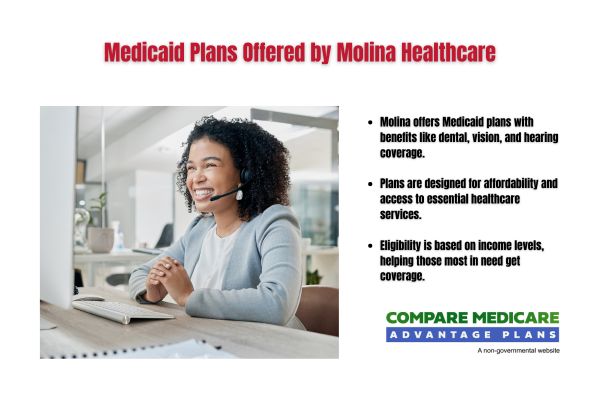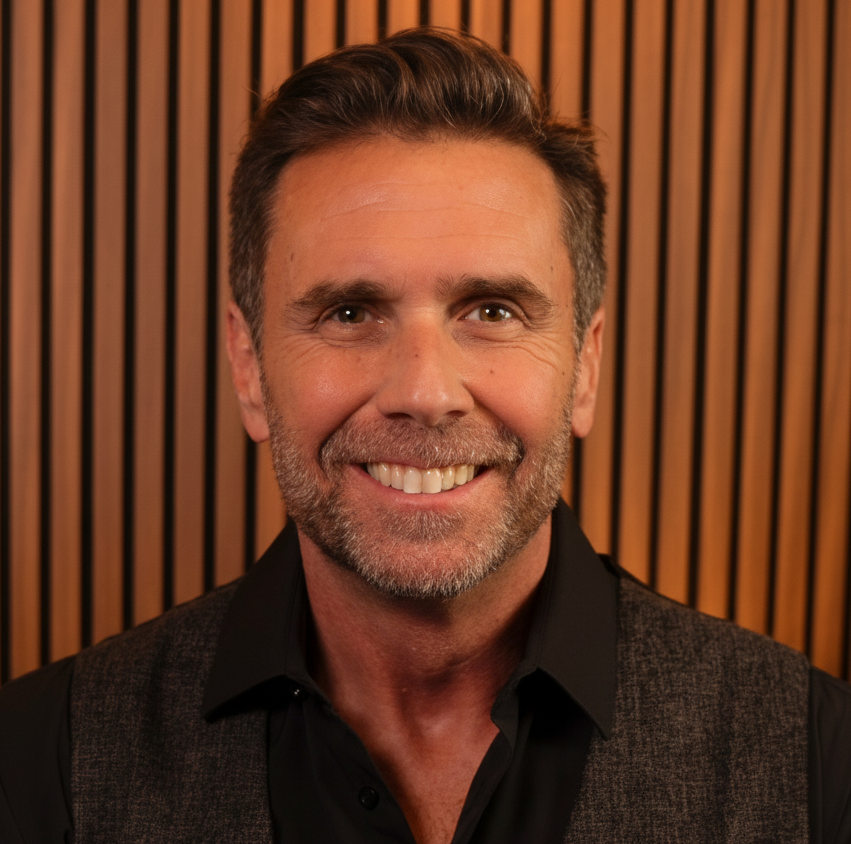




Is Molina Medicaid?
Yes, Molina Healthcare will likely be involved in Medicaid. Molina Healthcare may offer various Medicaid Plans that could potentially ensure low-income individuals and families could have access to essential healthcare services. This article will delve into Molina Healthcare’s role in the Medicaid program, including what Molina Healthcare plans could offer and how to enroll.
Key Takeaways
- Molina Healthcare, established in 1980, will likely focus on providing comprehensive Healthcare services to low-income individuals, particularly through Medicaid and Medicare.
- Medicaid has been a vital U.S. government program covering approximately 85 million low-income individuals and families, possibly ensuring access to essential health services.
- Molina Healthcare will likely integrate advanced technology and community programs to help enhance accessibility and overall health outcomes for Medicaid recipients.
Compare Plans in One Step!
Enter Zip Code
Understanding Molina Healthcare

Molina Healthcare was founded in 1980 by Dr. C. David Molina with a mission to provide quality healthcare to low-income patients. What started as a single clinic in California has grown into a vast network, expanding its services to multiple states, including Texas, Florida, New York, and many more. Today, Molina Healthcare employs approximately 18,000 people, all dedicated to improving healthcare access for underserved populations.
Molina Healthcare operates as a public company and may be traded on the NYSE under the ticker symbol MOH. This status might not only underscores its financial stability but also its commitment to transparency and accountability in delivering healthcare services. The company’s primary focus will likely be on government-funded healthcare programs, particularly Medicaid and Medicare, possibly ensuring that low-income families could receive the care they need.
Molina Healthcare’s mission will likely be to provide everyone, irrespective of their financial situation, access to quality healthcare services. They may accomplish this by offering managed care services and focusing on innovative solutions to healthcare challenges. This dedication to service and innovation could make Molina Healthcare a pivotal player in the healthcare industry.
What is Medicaid?
Medicaid is a U.S. government program established in 1965 as part of the Social Security Amendments. Its purpose is to provide health insurance to low-income individuals and families who lack the resources to afford private health insurance. The program has been jointly funded by federal and state governments, likely ensuring a broad safety net for those in need.
As of 2022, Medicaid covers approximately 85 million low-income and disabled individuals across the United States. This extensive coverage likely highlights the program’s role in the American healthcare system, particularly for vulnerable populations, including children, pregnant women, and the elderly. Medicaid has been one of the largest source of health coverage for pregnant women in the U.S., covering nearly half of all births.
To qualify for Medicaid, individuals must meet specific income criteria and be either U.S. citizens or qualified non-citizens. These eligibility requirements ensure that the program reaches those who need it most, providing essential health services and support to millions of Americans each year.
Molina Healthcare’s Role in Medicaid
Molina Healthcare will likely play a significant role in the Medicaid program, demonstrating a strong commitment to enhancing access to healthcare services for low-income individuals and families. Molina will likely offer various Medicaid plans, possibly ensuring enrollees could access a wide range of health services tailored to their needs.
Medicaid may not only vital for providing general healthcare but also for offering long-term care services. Molina Healthcare’s involvement in these areas will likely underscore its dedication to comprehensive care for its members.
Through its extensive network of healthcare providers and managed care services, Molina Healthcare will likely continue to strive to improve healthcare access and outcomes for Medicaid beneficiaries. This commitment may be evident in the variety of services they could offer, possibly ensuring that members receive the necessary medical attention.
Medicaid Plans Offered by Molina Healthcare

Molina Healthcare will likely offer a variety of Medicaid plans that could help meet the diverse needs of low-income individuals and families. Some plans may provide comprehensive coverage, such as dental, vision, and hearing coverage. Enrolling in a Molina Medicaid plan could provide members access to a network of healthcare services tailored to their specific needs.
One of the potential advantages of these plans may be their focus on accessibility and affordability. Eligibility for Molina Medicaid plans typically requires applicants to meet specific income guidelines relative to the federal poverty level. This ensures that those who need assistance the most could receive it without financial strain.
How to Enroll in Molina Medicaid
Enrolling in Molina Medicaid is a straightforward process, but it does require meeting certain eligibility criteria. Applicants must meet specific income and residency requirements as defined by their state’s Medicaid guidelines. Additionally, they need to provide necessary documentation, including proof of income, residency verification, and identification documents such as a driver’s license or social security card.
To enroll, enter your zip code into this website or call one of our licensed agents at 1-833-641-4938 (TTY 711), Mon-Fri 8 am-9 pm EST today.
For those who need help during the enrollment process, our licensed agents offer extensive support. Our agents team can answer questions and provide guidance, ensuring that applicants understand each step of the process. This support is crucial in making healthcare accessible to everyone who qualifies.
Accessing Services through Molina Medicaid
Once enrolled in Molina Medicaid, members may have access to a wide range of healthcare services that could meet their needs. These services might include dental, vision, and hearing coverage.
By offering comprehensive healthcare options, Molina will likely ensure that members could receive the care they need to maintain their health and well-being.
Molina Healthcare and Medicare
Molina Healthcare not only provides services through Medicaid but may also offer health insurance options through Medicare. This dual focus may allow Molina to cater to a broader range of individuals, from low-income families to seniors and disabled individuals. The potential integration of Medicaid and Medicare services may allow Molina Healthcare to offer a seamless healthcare experience for all its members.
The synergy between Medicaid and Medicare services provided by Molina Healthcare likely enhances the quality of care. Members may benefit from comprehensive health plans that could cover a wide array of services, possibly ensuring they receive the necessary medical attention without gaps in coverage. This integrated approach will likely underscores Molina’s commitment to improving healthcare access and outcomes for all.
Technology and Molina Medicaid
Molina Healthcare will likely leverage technology to enhance the efficiency and accessibility of its Medicaid services. Integrating technology into their healthcare delivery model could potentially ensure patients receive timely information and care at the right time. This technological integration could help streamline processes and may reduce barriers to accessing healthcare.
Awards and Recognition
Molina Healthcare has been recognized for excellence in Medicaid service delivery, earning several notable awards. One of the most prestigious honors is the National Quality Award, which highlights Molina’s efforts to improve healthcare access and outcomes for Medicaid beneficiaries. This recognition underscores the company’s dedication to providing high-quality care to underserved populations.
In addition to service excellence, Molina Healthcare has been honored for its comprehensive community programs that aim to boost health outcomes for low-income families. These accolades showcase Molina’s leadership in community health initiatives and its commitment to making a positive impact on the lives of Medicaid recipients.
Summary
Molina Healthcare will likely play a crucial role in providing healthcare services to low-income families through its Medicaid plans. With a strong commitment to enhancing access and improving health outcomes, Molina will likely leverage technology, community programs, and comprehensive care models to serve its members effectively. Understanding these elements could empower individuals to make informed healthcare choices and highlights the importance of accessible healthcare for all.
Frequently Asked Questions
→ What is the primary focus of Molina Healthcare?
Molina Healthcare will likely focus on offering managed care services for government-funded programs like Medicaid and Medicare, possibly aiming to enhance access to quality healthcare for underserved populations. This commitment could potentially ensure that vital healthcare services reach those in need.
→ Who is eligible for Medicaid?
To qualify for Medicaid, individuals must be U.S. citizens or qualified non-citizens and meet specific income criteria as determined by their state’s regulations.
→ How can I enroll in Molina Medicaid?
To enroll in Molina Medicaid, ensure you meet the income and residency requirements, then complete an application and provide necessary documentation like proof of income and identification.
→ What services may be available through Molina Medicaid?
Molina Medicaid will likely offer a range of services such as dental, vision, and hearing coverage. These potential services will likely be designed to support your overall health and well-being.

ZRN Health & Financial Services, LLC, a Texas limited liability company



